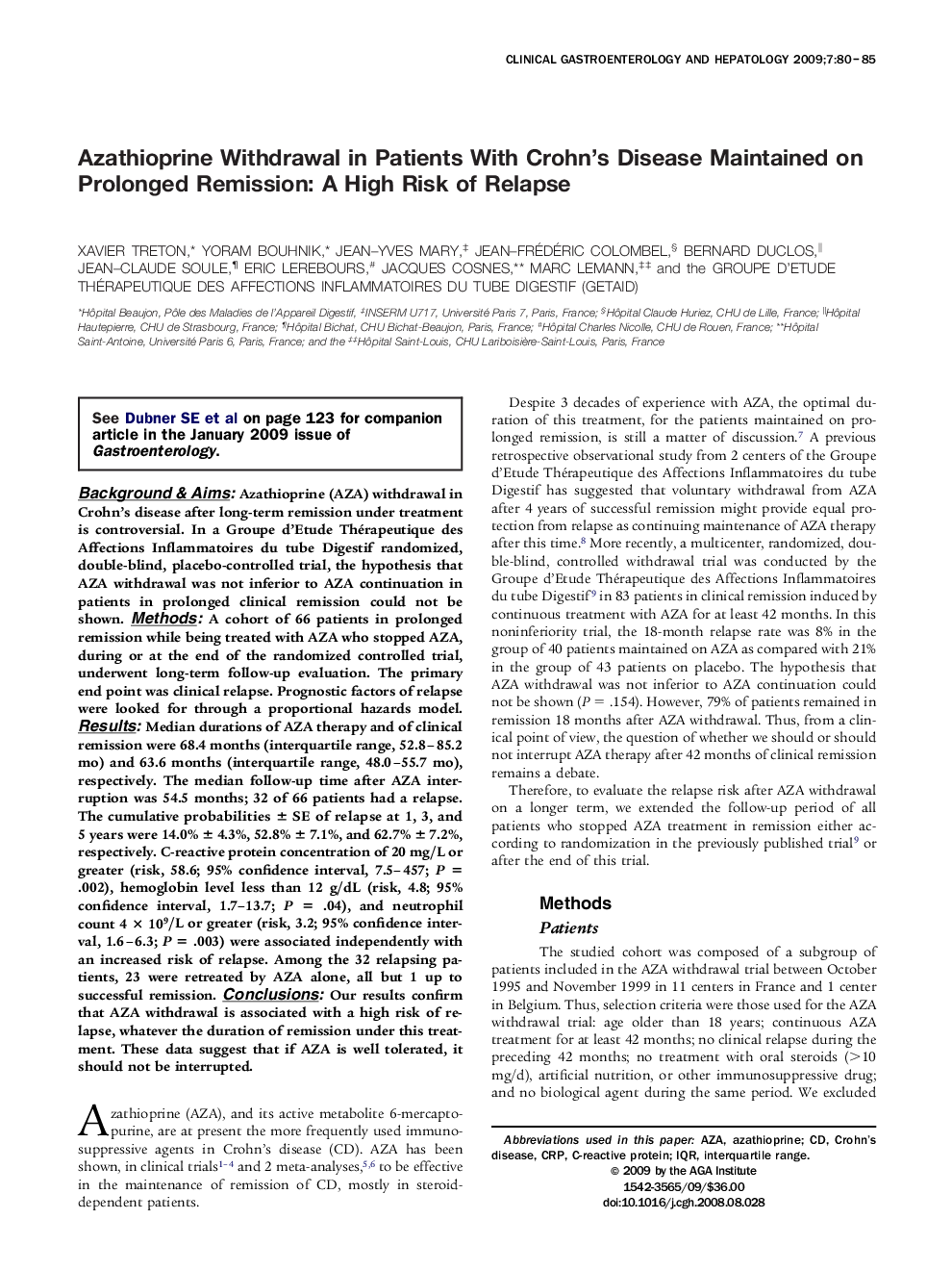| کد مقاله | کد نشریه | سال انتشار | مقاله انگلیسی | نسخه تمام متن |
|---|---|---|---|---|
| 3284461 | 1209204 | 2009 | 6 صفحه PDF | دانلود رایگان |

Background & AimsAzathioprine (AZA) withdrawal in Crohn's disease after long-term remission under treatment is controversial. In a Groupe d'Etude Thérapeutique des Affections Inflammatoires du tube Digestif randomized, double-blind, placebo-controlled trial, the hypothesis that AZA withdrawal was not inferior to AZA continuation in patients in prolonged clinical remission could not be shown.MethodsA cohort of 66 patients in prolonged remission while being treated with AZA who stopped AZA, during or at the end of the randomized controlled trial, underwent long-term follow-up evaluation. The primary end point was clinical relapse. Prognostic factors of relapse were looked for through a proportional hazards model.ResultsMedian durations of AZA therapy and of clinical remission were 68.4 months (interquartile range, 52.8–85.2 mo) and 63.6 months (interquartile range, 48.0–55.7 mo), respectively. The median follow-up time after AZA interruption was 54.5 months; 32 of 66 patients had a relapse. The cumulative probabilities ± SE of relapse at 1, 3, and 5 years were 14.0% ± 4.3%, 52.8% ± 7.1%, and 62.7% ± 7.2%, respectively. C-reactive protein concentration of 20 mg/L or greater (risk, 58.6; 95% confidence interval, 7.5–457; P = .002), hemoglobin level less than 12 g/dL (risk, 4.8; 95% confidence interval, 1.7–13.7; P = .04), and neutrophil count 4 × 109/L or greater (risk, 3.2; 95% confidence interval, 1.6–6.3; P = .003) were associated independently with an increased risk of relapse. Among the 32 relapsing patients, 23 were retreated by AZA alone, all but 1 up to successful remission.ConclusionsOur results confirm that AZA withdrawal is associated with a high risk of relapse, whatever the duration of remission under this treatment. These data suggest that if AZA is well tolerated, it should not be interrupted.
Journal: Clinical Gastroenterology and Hepatology - Volume 7, Issue 1, January 2009, Pages 80–85